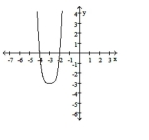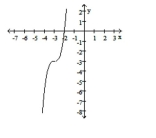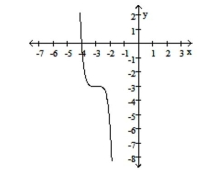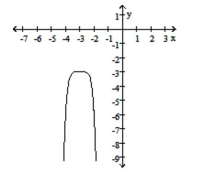Multiple Choice
Solve the problem.
-
a. Identify the power function of the form that is the parent function to the given graph.
b. In order, outline the transformations that would be required on the graph of to make the graph of the given function.
c. Match the function with the graph.
i.
ii.
iii.
iv.
A) a.
b. Shift to the left 3 units. Stretch vertically by a factor of 3 . Shift downward 3 units.
c. Graph iii.
B) a.
b. Shift to the left 3 units. Stretch vertically by a factor of 3 . Shift downward 3 units.
c. Graph ii.
C) a.
b. Shift to the left 3 units. Stretch vertically by a factor of 3 . Shift downward 3 units.
c. Graph i.
D) a.
b. Shift to the left 3 units. Shrink vertically by a factor of . Shift downward 3 units.
c. Graph iv.
Correct Answer:

Verified
Correct Answer:
Verified
Q14: Identify the asymptotes.<br>- <span class="ql-formula" data-value="r
Q15: Choose the one alternative that best
Q16: Write a polynomial f (x) that
Q17: Solve the inequality. Write the solution
Q18: Write the word or phrase that
Q20: Determine if the statement is true or
Q21: Solve the inequality. Write the solution
Q22: Use the remainder theorem to determine
Q23: Write the word or phrase that best
Q24: Write the function in vertex form